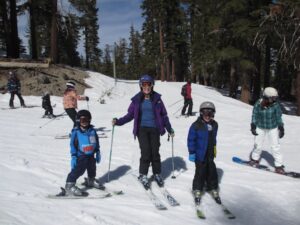Even In Our Backyard

Last night I joined over 350 concerned parents, teachers, physicians, therapists and law enforcement specialists–everyone who cares about kids, teens and young adults. We were shocked and educated (in that order) about the raw truth on the current state of drug use in our community.
What I found most surprising is that we weren’t talking about “illegal” drugs. We were talking about prescription drugs, meaning drugs prescribed by doctors. In Los Angeles County, prescription drugs account for more Emergency Room visits than any other issue. It’s commonplace now at high school parties for teens to bring whatever medications they find in a medicine cabinet, throw it in a bowl, mix it up and take some. It’s no wonder that overdose deaths (the majority of which are from prescription drugs) have surpassed traffic accidents as a leading cause of death in the United States.
Why the dramatic change in prescription drug misuse? Is it the increase in direct-to-consumer marketing of pharmaceuticals? Is it over-prescribing pain medications? Is there not enough education on preventing ailments and allowing your body to release its own natural medicines by eating healthy, exercising and getting enough sleep? It’s probably a mix of all of that and other factors, but now that we know it’s such a colossal problem, we need to take action.
Parents play the biggest role in determining whether or not their kids will be tempted, try a drug, misuse a medication or worse. Here are a few important and relatively simple things you can do at home.
• Keep track of your medications, regularly clean out your medicine cabinet and properly dispose of medications that are expired or no longer needed.
• Store medications up high and locked so young kids can’t reach them and older kids can’t misuse them.
• Educate your children on safe use of medication.
• Role model appropriate and smart medication taking behavior
It’s never too early to begin educating your kids. Even with preschoolers you can teach about proper medication use as you give them their daily vitamin or a dose of fever reducing medication when they aren’t feeling well. Teach kids to never ingest any candy or pill that they find lying around, no matter how yummy it looks. Explain to kids that although medication can often help them feel better, it can also be harmful if not taken exactly as the physician advises. Make sure your kids know that they are only to take a medication or vitamin when a trusted adult gives it to them. As children get older, explain to them to always use the dosing device that comes with the medicine and never use household measurement tools like teaspoons, tablespoons or kitchen spoons, as they are not accurate. Kids in middle school are old enough to be taught how to read and follow the Drug Facts label and never take more than directed. Teach tweens and teens about what active ingredients are in the medicine that is being taken, and to never use more than one medicine with the same active ingredient. And always, at any age, store medicines up, away and out of sight from children.
You may be doing everything right at home, but sometimes things happen when your child is out of your home. Discuss ways to properly deal with peer pressure and give them an “out” when needed. I often tell kids that it’s okay to blame your parents and say, “I can’t do that or my mom will take away my phone or my license.” Maybe have a safe word that your teen can text or call you with that means: Please come pick me up now!
It’s also important to know your child and their friends well. Know where they are at all times and what they are doing. Pay attention for warning signs of drug use such as slipping grades, tardiness or absence to classes or activities, and loss of interest in activities that they used to love. Also, if you notice your children are being secretive, their appearance dramatically changes or anything else that concerns you, talk to them and get help right away.
There are many resources available from school counselors to your pediatrician, all specially trained to help your family. It’s never too soon to start talking to your child about medication use and abuse. The conversations you have today can help your child make healthy choices in the future.


